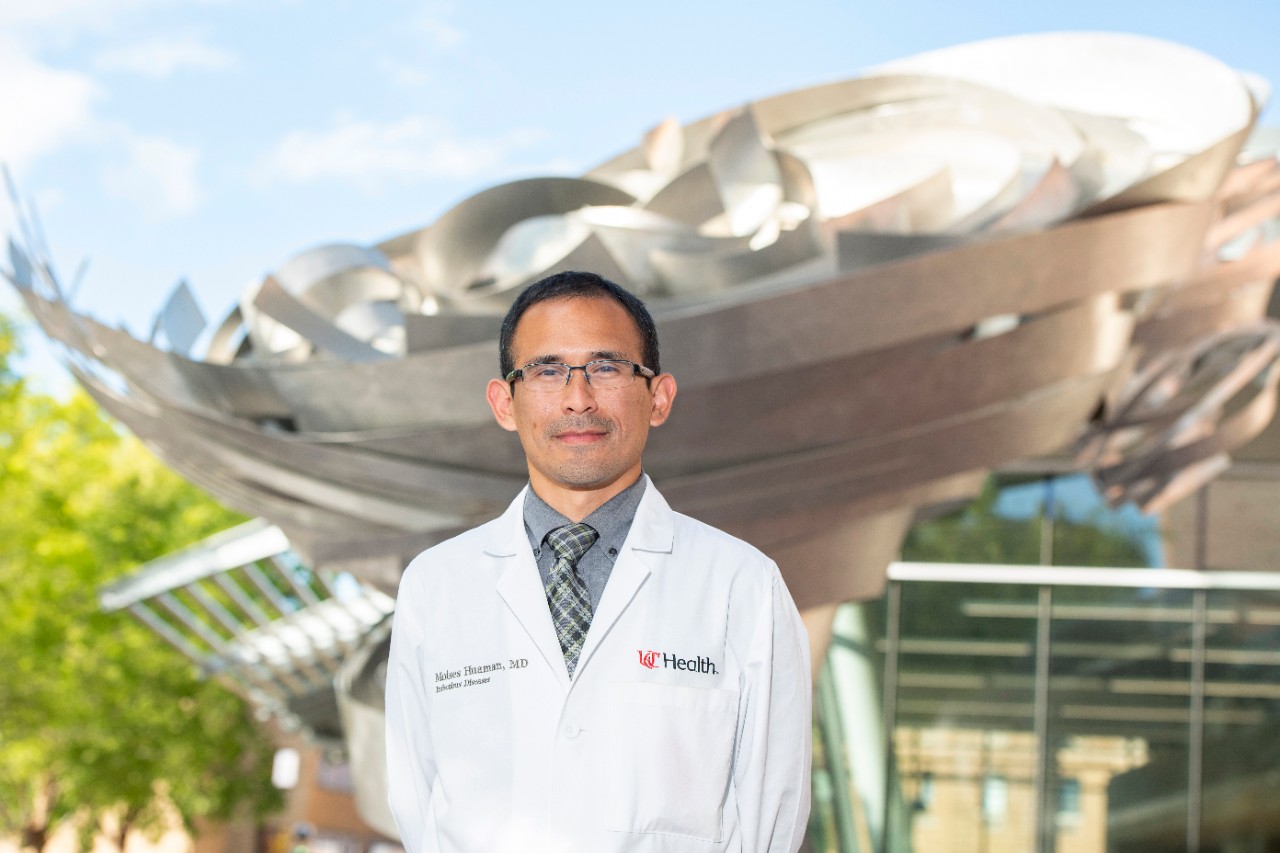
UC research shows people with latent tuberculosis infection are more prone to inflammation
Study examines connection between inflammation, infection and cardiovascular risk
Newly published research from the University of Cincinnati finds that people with latent tuberculosis infection (LTBI) have more inflammation and could be at a higher risk for cardiovascular disease.
The research was published in Open Forum Infectious Diseases, a journal from the Infectious Diseases Society of America.
Roughly 25% of the world population has LTBI, a state where the individual has been exposed to tuberculosis but is not sick from it, says Moises Huaman, MD, of the Division of Infectious Diseases in the Department of Internal Medicine at the UC College of Medicine and corresponding author on the study.
“Developing countries have higher rates of LTBI,” says Huaman. “There are areas in the world where LTBI may affect 50% or so of the population. Here in the United States, the prevalence of LTBI is about 5%, which is still common. It is a global health problem.”
The research team analyzed blood samples from individuals with LTBI in Peru between the ages of 40 and 70.
“We focused on monocytes [a type of white blood cell], and we measured markers associated with immune activation and with cardiovascular disease,” says Geronimo Feria, research associate in the UC Department of Internal Medicine and first author on the study. “We found differences in the expression of monocyte markers that are important not only for infection control but also for atherogenesis, the process of plaque formation [in the arteries] leading to coronary artery heart disease.”
A monocyte is an immune cell that is important for fighting infections like tuberculosis, but also plays a role in cardiovascular health, explains Huaman.
Our study is pioneering in looking at how monocytes may be more pro-inflammatory in people with LTBI. A natural follow-up question would be whether treating LTBI will help treat that inflammation or not.
Moises Huaman, MD
He says another significant element to this research is the role inflammation plays in chronic diseases.
“Anything that leads to an inflammatory state in the body might predispose us to develop chronic diseases. Cardiovascular disease is one of those, along with diabetes, cancer and others,” Huaman says. “Our study is pioneering in looking at how monocytes may be more pro-inflammatory in people with LTBI. A natural follow-up question would be whether treating LTBI will help treat that inflammation or not.”
Huaman says this study and other research in this area highlights that infections in general have a role in cardiovascular disease risk, as evidenced in cases of influenza, HIV and more recently COVID-19.
“I think this is a connection worth exploring because of how common LTBI is,” says Huaman. “The fact that UC is taking a lead on trying to understand how infections affect cardiovascular disease is significant.”
Next Lives Here
The University of Cincinnati is classified as a Research 1 institution by the Carnegie Commission and is ranked in the National Science Foundation's Top-35 public research universities. UC's graduate students and faculty investigate problems and innovate solutions with real-world impact. Next Lives Here.
Related Stories
UC study: Brain organ plays key role in adult neurogenesis
July 2, 2024
The University of Cincinnati has published research in the Proceedings of the National Academy of Sciences that found the choroid plexus and cerebrospinal fluid play a key role in maintaining a pool of newly born neurons to repair the adult brain after injury.
Put down that beer; it's not a tanning lotion
July 1, 2024
The University of Cincinnati's Kelly Dobos joined WVXU's Cincinnati Edition to discuss what's fact and what's myth when it comes to sunscreen use, different kinds of sunscreen and a social media recommendation to use beer on your skin to help get a tan.
Cincinnati researchers want to know if MRIs can work better
June 28, 2024
WVXU and the Cincinnati Business Courier highlighted a new collaboration between the University of Cincinnati College of Medicine, UC Health GE HealthCare, JobsOhio, REDI Cincinnati and Cincinnati Children’s to create an MRI Research and Development Center of Excellence located on UC’s medical campus.
UC opens Blood Cancer Healing Center
June 28, 2024
Media outlets including WLWT, Local 12, Spectrum News, the Cincinnati Enquirer and Cleveland.com highlighted the opening of the University of Cincinnati Cancer Center's Blood Cancer Healing Center.
New project aims to better support teen mothers in Adams County
June 27, 2024
WCPO highlighted a partnership between the University of Cincinnati and the Adams County Health Department that is aiming to provide better support for teen mothers in the county.
Free Wi-Fi, work area coming to Greater Cincinnati
June 27, 2024
St. Lawrence Park in Price Hill now has free Wi-Fi and a furnished outdoor space for community members to access digital needs. The space is part of The Nodes Project, which stands for “Neighborhoods of Design Engagement": a collaboration between UC DAAP communication designers and community entities.
Study aimed at reducing opioid overdose deaths presents results
June 27, 2024
The University of Cincinnati's John Winhusen and Caroline Freiermuth discussed the evidence-based practices implemented during the HEALing Communities Study to fight the opioid epidemic with Spectrum News.
University of Cincinnati, UC Health collaborate with GE HealthCare on MRI research center
June 26, 2024
The University of Cincinnati and UC Health are collaborating with GE HealthCare, JobsOhio, REDI Cincinnati and Cincinnati Children’s to create an MRI Research and Development Center of Excellence located on UC’s medical campus.
The health impact of living near a natural gas leak
June 25, 2024
UC College of Arts and Sciences Professor Amy Townsend-Small talks to the BBC about the health issues faced by neighbors of leaking natural gas wells.
Male birth control gel inches towards FDA approval
June 25, 2024
The University of Cincinnati's Wesley Baas spoke with Yahoo News and the Cincinnati Enquirer about a new male birth control gel that could be close to receiving FDA approval.
